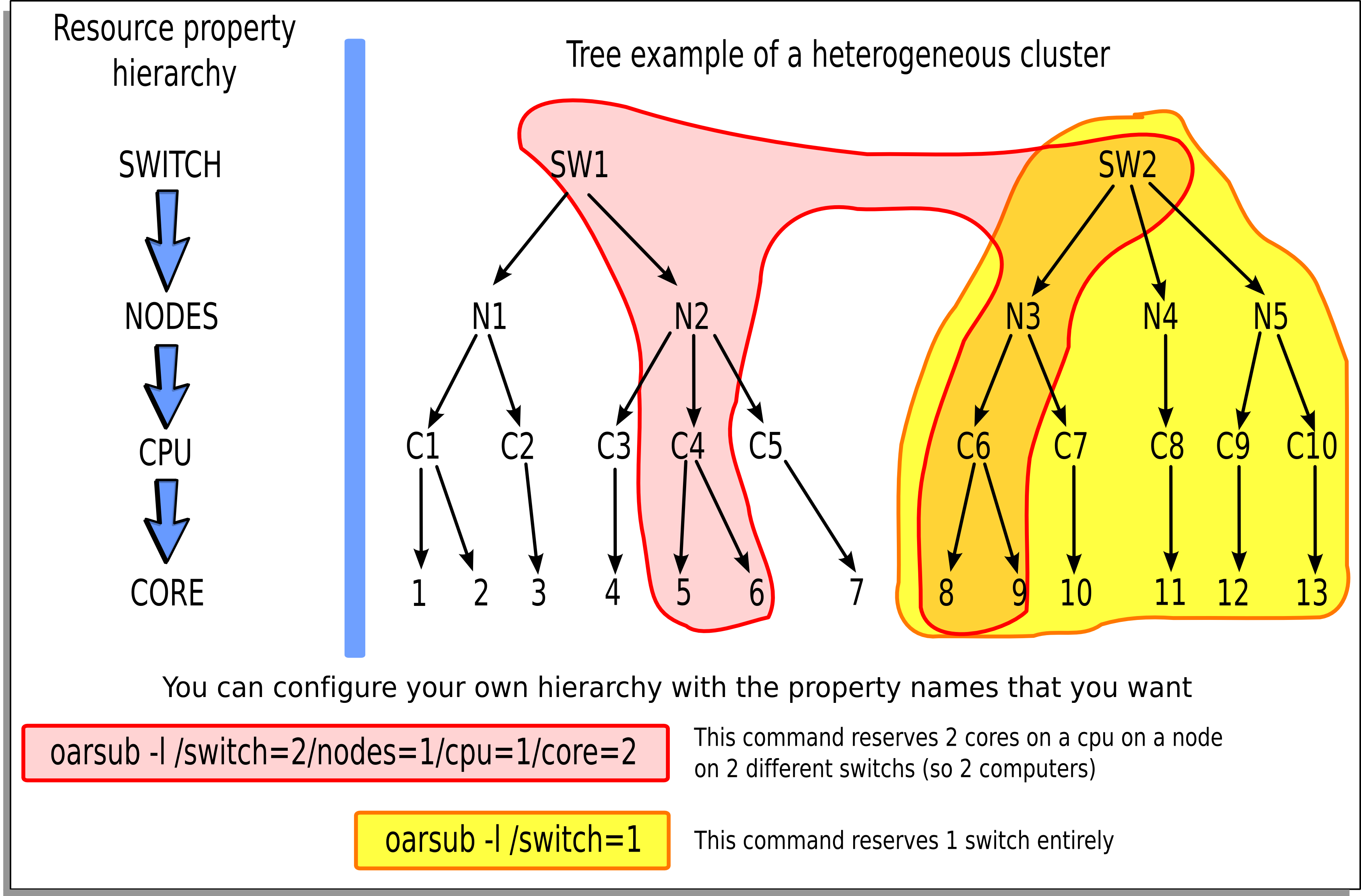oarsub¶
The user can submit a job with this command. So, what is a job in our context?
A job is defined by needed resources and a script/program to run. So, the user must specify how many resources and what kind of them are needed by his application. Thus, OAR system will give him or not what he wants and will control the execution. When a job is launched, OAR executes user program only on the first reservation node. So this program can access some environment variables to know its environment:
$OAR_NODEFILE contains the name of a file which lists all reserved nodes for this job $OAR_JOB_ID contains the OAR job identificator $OAR_RESOURCE_PROPERTIES_FILE contains the name of a file which lists all resources and their properties $OAR_JOB_NAME name of the job given by the "-n" option $OAR_PROJECT_NAME job project name
See the manual page of the command for its syntax.
Wanted resources have to be described in a hierarchical manner using the “-l” syntax option.
Moreover it is possible to give a specification that must be matched on properties.
So the long and complete syntax is of the form:
"{ sql1 }/prop1=1/prop2=3+{sql2}/prop3=2/prop4=1/prop5=1+...,walltime=1:00:00"
- where:
- sql1 : SQL WHERE clause on the table of resources that filters resource names used in the hierarchical description
- prop1 : first type of resources
- prop2 : second type of resources
- + : add another resource hierarchy to the previous one
- sql2 : SQL WHERE clause to apply on the second hierarchy request
- …
So we want to reserve 3 resources with the same value of the type prop2 and with the same property prop1 and these resources must fit sql1. To that possible resources we want to add 2 others which fit sql2 and the hierarchy /prop3=2/prop4=1/prop5=1.
Examples
# oarsub -l /nodes=4 test.sh
(the “test.sh” script will be run on 4 entire nodes in the default queue with the default walltime)
# oarsub --stdout='test12.%jobid%.stdout' --stderr='test12.%jobid%.stderr' -l
/nodes=4 test.sh
...
OAR_JOB_ID=702
...
(same example than above but here the standard output of “test.sh” will be written in the file “test12.702.stdout” and the standard error in “test12.702.stderr”)
# oarsub -q default -l /nodes=10/cpu=3,walltime=2:15:00 \
-p "switch = 'sw1'" /home/users/toto/prog
(the “/home/users/toto/prog” script will be run on 10 nodes with 3 cpus (so a total of 30 cpus) in the default queue with a walltime of 2:15:00. Moreover “-p” option restricts resources only on the switch ‘sw1’)
# oarsub -r "2009-04-27 11:00:00" -l /nodes=12/cpu=2
(a reservation will begin at “2009-04-27 11:00:00” on 12 nodes with 2 cpus on each one)
# oarsub -C 42
(connects to the job 42 on the first node and set all OAR environment variables)
# oarsub -p "not host like 'nodename.%'"
(To exclude a node from the request)
# oarsub -I
(gives a shell on a resource)

